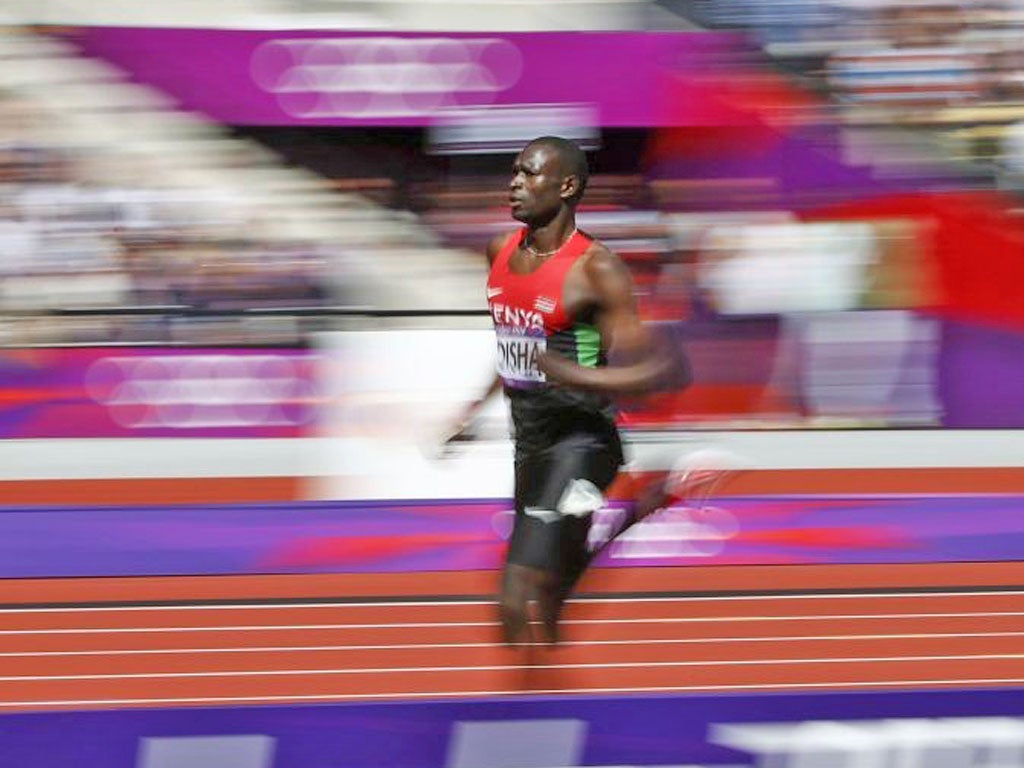The Irish priest who made running a religion in Kenya
The rise of Kenya as an athletics powerhouse can be traced to one village – and one man

Your support helps us to tell the story
From reproductive rights to climate change to Big Tech, The Independent is on the ground when the story is developing. Whether it's investigating the financials of Elon Musk's pro-Trump PAC or producing our latest documentary, 'The A Word', which shines a light on the American women fighting for reproductive rights, we know how important it is to parse out the facts from the messaging.
At such a critical moment in US history, we need reporters on the ground. Your donation allows us to keep sending journalists to speak to both sides of the story.
The Independent is trusted by Americans across the entire political spectrum. And unlike many other quality news outlets, we choose not to lock Americans out of our reporting and analysis with paywalls. We believe quality journalism should be available to everyone, paid for by those who can afford it.
Your support makes all the difference.They have the men's 800m world record holder, the women's 5,000m world champion and last year they had all 20 of the fastest marathon runners in the world. It is no wonder that just four words strike fear into every other distance runner at athletics meets: the Kenyans are coming.
Although the formidable Kenya athletics team has had a slow start by its standards, gold medal hopes remain in nearly every distance event. Tonight, the 800m world record holder David Rudisha will run for his place in the 800m final – an event in which he holds five of the 10 fastest times in history.
The rise of the east African nation as a global athletics powerhouse is one of the most unlikely stories in modern sport and the secret behind its success lies in a small village, in the Rift Valley, where a 63-year-old Irish priest has mentored champion after champion.
Rudisha, 23, is only the latest in a long line of world beaters who have trained in the village of Iten, the Mecca of running, under the guidance of Brother Colm O'Connell, a Catholic missionary turned inspirational coach.
Mo Farah, who won a gold medal in the 10,000 metres on Saturday night, and marathon world record holder Paula Radcliffe both trained at Iten in the run-up to London 2012.
Brother O'Connell arrived in Iten, 2,400 metres above sea level in the Rift Valley, in 1976, to teach geography on a three-year contract. Thirty-five years later he is still there. In that time he has mentored 25 world champions and four Olympic gold medallists, acquiring what he calls a "sixth sense" for the sport. An estimated 800 to 1,000 runners live and train in the Iten area. The facilities are basic and diet Spartan but runners from all over the world come to the village. Last winter Mo Farah went to train at Iten. Three days ago he won gold.
The Kenyan squad was so fond of its high-altitude training that Athletics Kenya refused to send their runners to the team's training camp in Bristol ahead of the Games. "The whole world is coming to Kenya to train in long and middle-distance races," Athletics Kenya's chairman Isaiah Kiplagat said. "Why would we take our team to Bristol?"
In the Rift Valley, running is a way of life and years of training at high altitude hugely increase the blood's efficiency in carrying oxygen. To be a runner is a ticket out of poverty for some and those growing up in the Rift Valley are not short of role models.
The team's former Olympic captain and 800m gold medallist in Beijing, Wilfred Bungei, has retired, but tips his countrymen for success in London. Bungei believes Kenya's domination in long distances came by accident. "Sprinting talents scouts went to Jamaica and West Africa so Kenyans were forced to try long distances and it worked," he says. "Children have been emulating the older athletes. Children say, 'I can be a great like athlete like Bungei' and they start training."
"I've always concentrated on the development of young athletes," Brother O'Connell said when The Independent met him in Iten earlier this year. "That's where the Kenyan supply line comes from. I've not really moved up the line and ignored the youngsters."
The formula appears to be working. Kenya was the most successful African nation in Beijing f our years ago, winning six gold, four silver and four bronze medals – all in distance running events. In London, Ezekiel Kemboi has already taken gold in the 3,000m steeplechase and the total medal haul is expected to grow.
What's for breakfast?: Kenya vs Phelps
A Kenyan runner's breakfast
Ugali (maize, water, salt)
Michael Phelps' breakfast
Three fried-egg sandwiches topped with cheese, tomatoes, lettuce, fried onions and mayo
A five-egg omelette.
Three chocolate-chip pancakes
Three slices of French toast dusted with sugar
A bowl of grits (maize porridge)
Two cups of coffee
Join our commenting forum
Join thought-provoking conversations, follow other Independent readers and see their replies
Comments